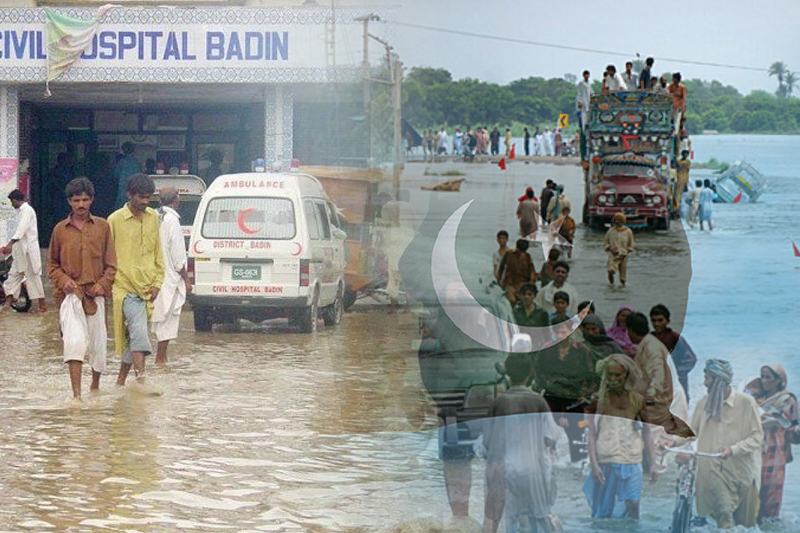
“Climate catastrophe” floods in Pakistan claim over 1000 lives
The widespread flooding in Pakistan has claimed more than 1,000 lives since mid-June, as the country’s climate minister has called the deadly monsoon season in nation “a serious climate catastrophe.” Flash flooding due to heavy rains in the Asian country has swept away villages and crops as rescue operations have managed to evacuate stranded residents to the relief camps.
Sherry Rehman, a Pakistani senator and the country’s top climate official, said in a video that was posted on Twitter that the country is experiencing a “serious climate catastrophe, one of the hardest in the decade.” The video was later retweeted by country’s ambassador to European Union. “We are at the moment at the ground zero of the front line of extreme weather events, in an unrelenting cascade of heatwaves, forest fires, flash floods, multiple glacial lake outbursts, flood events and now the monster monsoon of the decade is wreaking non-stop havoc throughout the country,” she said.
Keep Reading
Swat River’s overnight flooding affected northwestern Khyber Pakhtunkhwa province. Tens of thousands of people, mainly in the Charsadda and Nowshehra districts, have been evacuated to relief camps that have been set up in government buildings. Many people have also taken shelter on roadsides, said Kamran Bangash, provincial government’s spokesperson. Khaista Rehman, 55, took shelter with his wife and three children on the side of the Islamabad-Peshawar highway after his home was submerged overnight in Charsadda. “Thank God we are safe now on this road quite high from the flooded area,” he said. “Our crops are gone and our home is destroyed but I am grateful to Allah that we are alive and I will restart life with my sons.”
Nizamuddin, 65, a retired police officer who lost his mud house, had to take refuge in the tents. “We are in dire need of medicines, dry ration, tents and medical camps. We appeal to the government to help us,” he said. “We see dead animals and livestock floating in the water. People are getting sick and need clean drinking water and food. We are getting donations but that is not enough,” said Jamali, a student.




